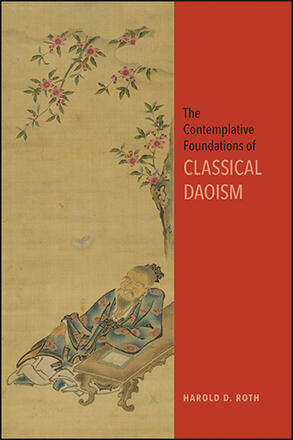
The Contemplative Foundations of Classical Daoism
Alternative formats available from:
Brings early Daoist writings into conversation with contemporary contemplative studies.
Description
In The Contemplative Foundations of Classical Daoism, Harold D. Roth explores the origins and nature of the Daoist tradition, arguing that its creators and innovators were not abstract philosophers but, rather, mystics engaged in self-exploration and self-cultivation, which in turn provided the insights embodied in such famed works as the Daodejing and Zhuangzi. In this compilation of essays and chapters representing nearly thirty years of scholarship, Roth examines the historical and intellectual origins of Daoism and demonstrates how this distinctive philosophy emerged directly from practices that were essentially contemplative in nature.
In the first part of the book, Roth applies text-critical methods to derive the hidden contemplative dimensions of classical Daoism. In the second part, he applies a "contemplative hermeneutic" to explore the relationship between contemplative practices and classical Daoist philosophy and, in so doing, brings early Daoist writings into conversation with contemporary contemplative studies. To this he adds an introduction in which he reflects on the arc and influence on the field of early Chinese thought of this rich vein of scholarship and an afterword in which he applies both interpretive methods to the vexing question of the authorship of the Inner Chapters of the Zhuangzi. The Contemplative Foundations of Classical Daoism brings to fruition the cumulative investigations and observations of a leading figure in the emerging field of contemplative studies as they pertain to a core component of early Chinese thought.
Harold D. Roth is Professor of Religious Studies and East Asian Studies and the Founder and Director of the Contemplative Studies Program at Brown University. His books include The Textual History of the Huai-nan Tzu; Original Tao: Inward Training (Nei-yeh) and the Foundations of Taoist Mysticism; Daoist Identity: History, Lineage, and Ritual (coedited with Livia Kohn); The Huainanzi: A Guide to the Theory and Practice of Government in Early Han China and The Essential Huainanzi (cotranslated and edited with John S. Major, Sarah A. Queen, and Andrew Seth Meyer).
Reviews
"Roth's textual archaeology of inner cultivation in Daoist texts is inspiring and certainly convincing … this collection is a remarkable achievement and a valuable resource for scholars and students of China, and will be useful and thought-provoking reading for anyone interested in Daoism and contemplative practices." — Bulletin of the School of Oriental and African Studies
"In this collection, Harold Roth brings together the pivotal essays representing both the innovation and expertise that have marked his scholarship on Daoism for roughly the last twenty-five years." — Philosophy East and West
"This compilation of 13 scholarly papers published between 1991 and 2018 is a timely reminder of Roth's significant contribution to our methods of reading ancient Chinese philosophy and defining the origins of Daoist thought and practice…the book's value lies in the knowledge it conveys on intriguing and hard-to-read ancient philosophical texts." — Religious Studies Review